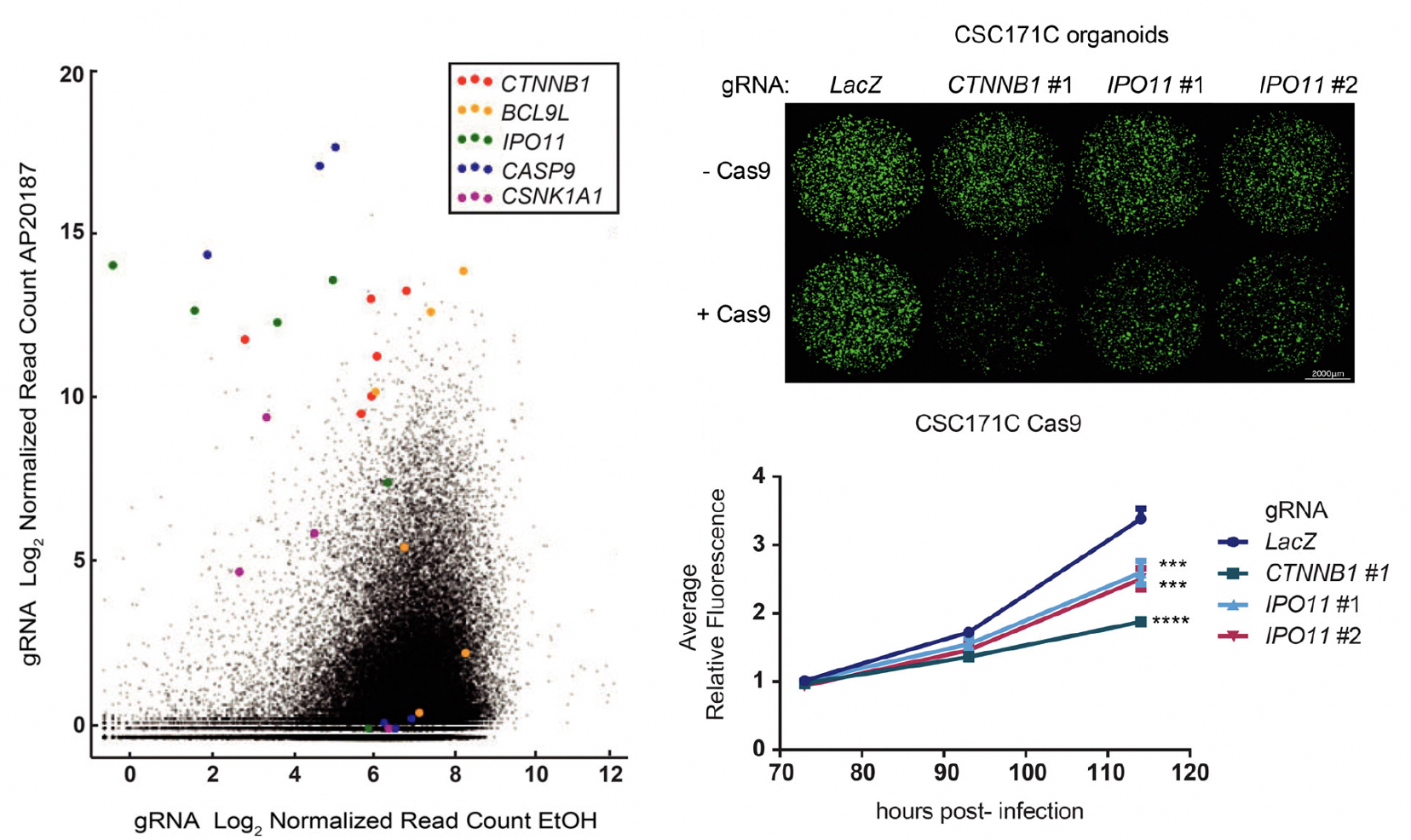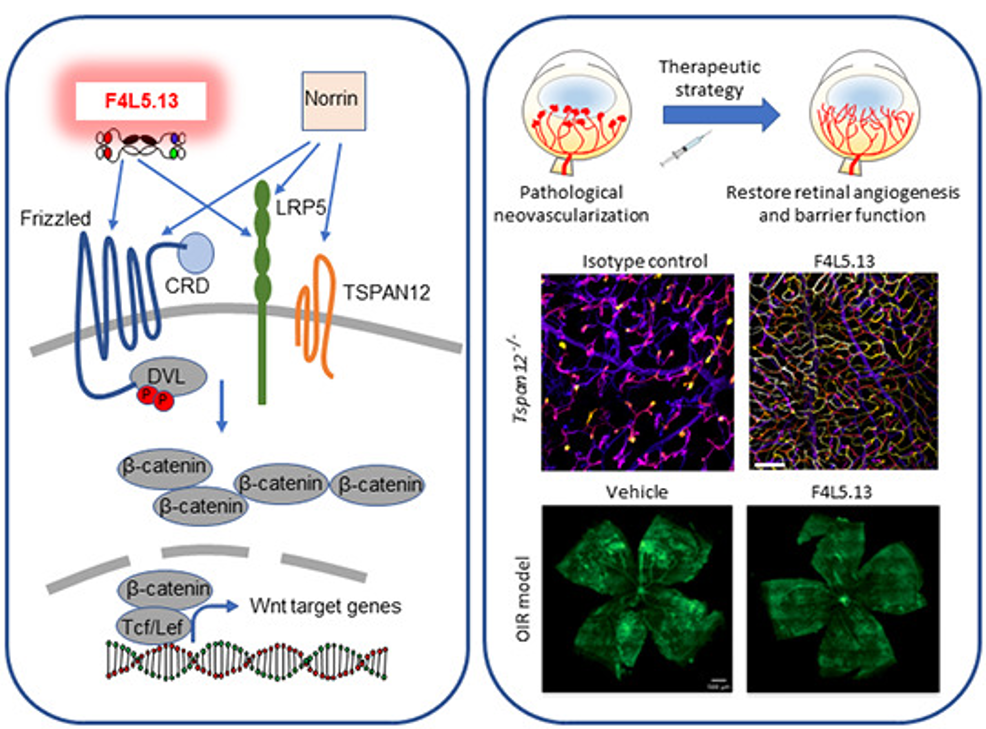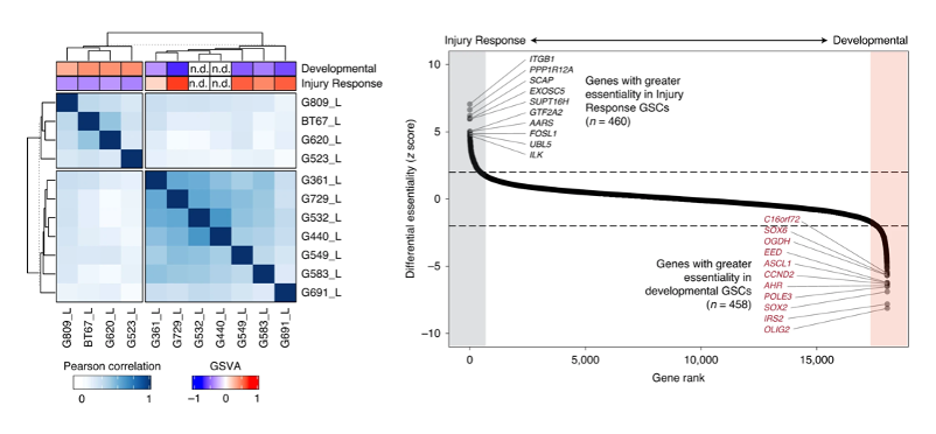Stephane Angers
PhD

Qualification
- Howard Hughes Medical Institute, University of Washington, Seattle, WA, U.S., Postdoctoral Research Fellow, 2002-2006.
- Université de Montréal, Montreal, PhD in Biochemistry, 2002.
- McGill University, Montreal, BSc in Biochemistry, 1997.
OTHER AFFILIATIONS
- Department of Biochemistry, University of Toronto.
- Department of Pharmaceutical Sciences, University of Toronto.
MY RESEARCH OVERVIEW (GO TO SCIENTIFIC OVERVIEW)
Study of the Wnt family of secreted growth factors in development, stem cells, tissue regeneration and cancer
The Wnt family of secreted proteins are essential in every multicellular organism to promote stem cell self-renewal and differentiation to various cell types. For example, Wnt proteins instruct which regions of a developing embryo should form the head and the tail. In adult animals, Wnt proteins control the homeostasis of all tissues by promoting the self-renewal of tissue stem cells. They are thus critical in response to injuries to regenerate our tissues. Because they are involved in such critical processes, when the intracellular signalling pathways controlled by Wnt proteins go awry, for example because of mutations, this leads to diseases such as osteoporosis, retinal diseases, tissue fibrosis and cancer.
Our group is interested in understanding the signalling mechanisms that are controlled by Wnt proteins. We are uncovering new genes implicated in this fundamental signaling pathway using a combination of enabling genomic and proteomic technologies but also more traditional biochemistry and cell biology approaches. Our focus is also directed towards the defects in the signalling mechanisms that lead to human diseases.
With this knowledge, we are collaborating with various groups, including Sachdev Sidhu, to develop biologic drugs modulating Wnt signalling activity for the treatment of cancer and to promote the regeneration of tissues with the hope to benefit human health.
A second focus of our group is the study of two of the most devastating cancers: pancreatic cancer and glioblastoma. Using functional genomic approaches, we are identifying genes required for the growth of these cancers by studying genetic programs important for cancer stem cells renewal and differentiation. In the process we are nominating novel targets for drug discovery, which could one day provide new hope for patients.
SCIENTIFIC RESEARCH OVERVIEW
1) Molecular mechanisms underlying intracellular signalling activated by the Wnt and Hedgehog families of secreted growth factors.
To fully understand the cellular signalling mechanisms underlying the Wnt and Hedgehog pathways, we integrate proteomic and genome-wide CRISPR functional genomic techniques with traditional biochemistry and cell biology approaches to reveal new genes involved in these pathways in different cellular contexts. We are interested in the defects found within these pathways contributing to human diseases such as cancer. The role of Wnt proteins in differentiation of human pluripotent stem cells towards various lineages and in morphogenesis of 3D organoid cultures is also an area of investigation. (Mis et al. J Cell Biol 2020; Rajakulendran et al. Genes and Dev 2019)

2) Development of new therapeutics targeting developmental pathways.
In collaboration with the group of Sachdev Sidhu at the Donnelly Centre, we have developed therapeutic antibodies modulating Wnt signalling that are now under clinical evaluation. We plan to continue optimize second generation molecules that are safer and more effective as well as identify novel antibodies that block new targets in the Wnt pathway. Recently, we contributed to the development of a new antibody modality that enables activation of Wnt signalling pathways with complete selectivity. We are testing these molecules for regenerative medicine applications such as directed differentiation of progenitor stem cells for cell therapies and direct mobilization of tissue stem cells for endogenous repair. (Chidiac et al. EMBO Mol Med 2021; Tao et al. Elife 2019; Steinhart et al. Nature Medicine 2017).

3) Deciphering the molecular wiring of high fatality cancers using functional genomic screens
Glioblastoma and pancreatic ductal adenocarcinomas are two cancers with especially poor prognosis and limited treatment options. Using genome-wide CRISPR-Cas9 functional and phenotypic screens performed in patient-derived cancer stem cells, we are identifying genes that 1) are essential for the growth of these cancers 2) block their normal differentiation 3) underlie tumour heterogeneity. We are also performing chemogenomic screens to identify mechanisms of drug resistance and genes conferring hypersensitivity to standard of care therapeutic drugs. (Richards et al. Nature Cancer 2021; Macleod et al. Cell Reports 2019).

SELECT PUBLICATIONS
-
A Norrin/Wnt surrogate antibody stimulates endothelial cell barrier function and rescues retinopathy. Chidiac R, Abedin M, MacLeod G, Yang A, Thibeault PE, Blazer LL, Adams JJ, Zhang L, Roehrich H, Jo H, Seshagiri S, Sidhu SS, Junge H and Angers S. EMBO Mol Med 2021. 13:e13977.
-
IPO11 mediates βcatenin nuclear import in a subset of colorectal cancers. Mis M, O'Brien S, Steinhart Z, Lin S, Hart T, Moffat J and Angers S. J Cell Biol 2019. 219 (2): e201903017.
-
Genome-Wide CRISPR-Cas9 Screens Expose Genetic Vulnerabilities and Mechanisms of Temozolomide Sensitivity in Glioblastoma Stem Cells. MacLeod G, Bozek DA, Rajakulemndran N, Monteiro V, Ahmadi M, Steinhart Z, Kushida MM, Yu H, Coutinho FJ, Cavalli FMG, Restall I, Hao X, Hart T, Luchman HA, Weiss S, Dirks PB and Angers S. Cell Reports 2019. 971-986.e9
